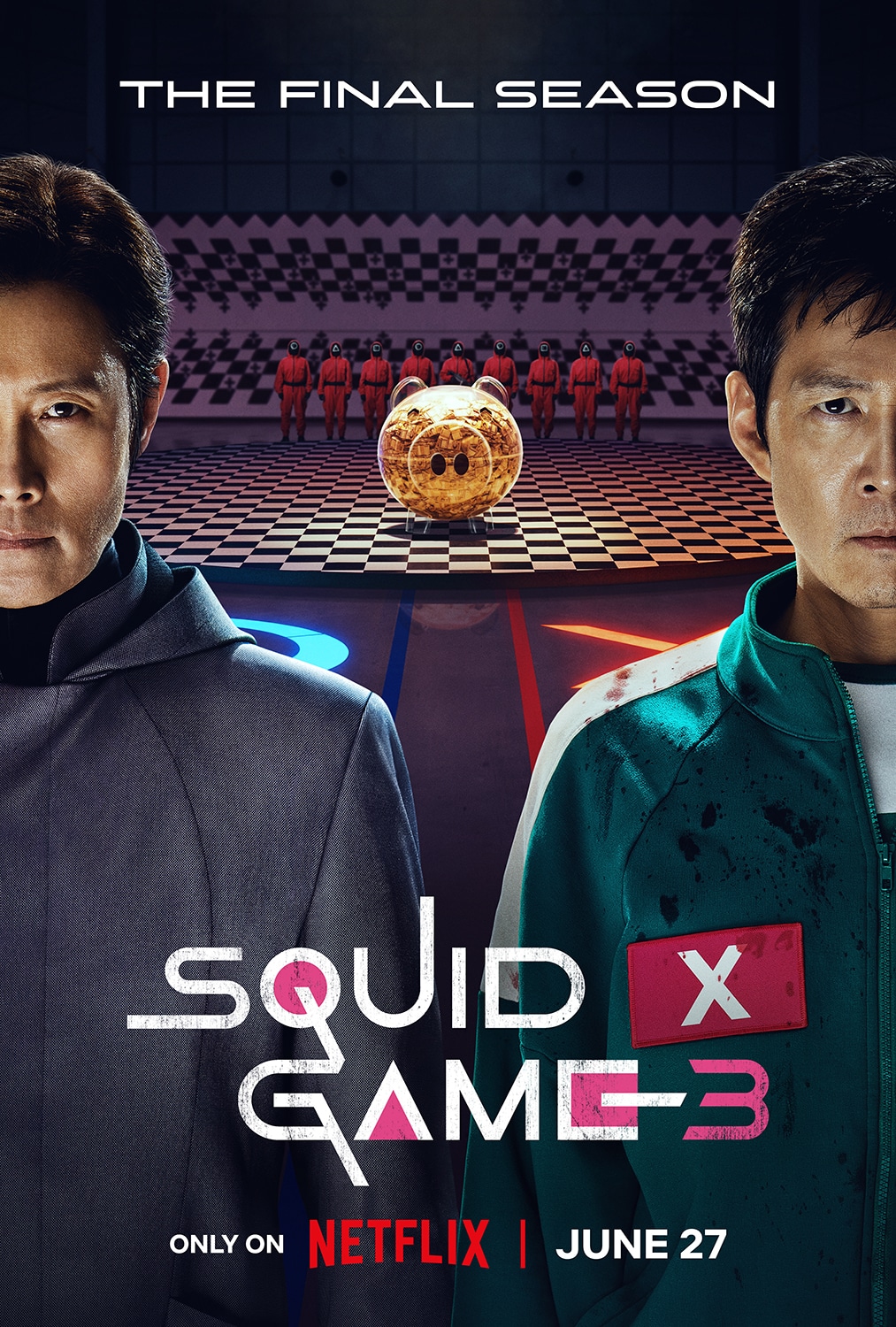
- Creator
- Hwang Dong-hyuk
- Rating
- TV-MA
- Episodes
- 6
- Running Time
- 366 minutes
- Channel
- Netflix
Overall Score
Rating Summary
Bringing such a massive story to a close can be a massive challenge, but Squid Game creator Hwang Dong-hyuk knows exactly the story he wants to tell. The third and final season picks up right where the previous season leaves off, with Gi-hun’s plan to end the game having failed, leading to his best friend being killed and Detective Hwang Jun-ho continuing to struggle to find the island.
Starting from a bleak place, a strong sense of dread would follow, hanging over the entire season. That being said, there is still hope as friendship and heroism remain, but the sense of camaraderie seen in last go-around of games is mostly gone. Along those lines, viewers expecting a triumphant comeback for the characters are likely be left disappointed. The potential of a rebellion proved to be short-lived as it never truly stood a chance. From the start, Squid Game has portrayed a world that is unfair and soul-crushing, and that view remains consistent here. What does change, however, is Gi-hun’s mission. After the untimely birth of Jun-hee’s child during the games, that mission evolved, dedicating himself to protecting both the child and the mother.
From there, Gi-hun’s actions worked to confuse the other players, who did not share or understand his newfound motivations. Meanwhile, the choice to bring the baby to life through CGI will require some suspension of disbelief as it stands out amongst what is otherwise a very serious story. However, it merely amounts to a minor gripe that comes nowhere near ruining the season. Where the first season saw Gi-hun fighting for survival, and the second season saw him attempting to end the game, this season has him fully committed to protecting the innocent. As a result, this makes for a smaller story in scope, which only ratchets up the season’s emotional stakes that much higher. Now, when it comes to the games themselves, they remain as intense as ever, cleverly tying up arcs introduced last season.
Interestingly enough, this season has the Front Man mostly taking a back seat, becoming more of an observer as opposed to an active participant. His cynical view toward humanity provides a compelling contrast to Gi-hun’s, as both their philosophies are put to the test as the games continue. In the end, it is possible that the Front Man, deep down, wants Gi-hun to be proven right, after having witnessed much of the same horrors while competing in the games. There’s no doubt that he is a major character in the Squid Game universe, but this final season goes further by establishing the organization behind the games as an entity that is much larger and wider-reaching than him. It is also revealed that the organization does not limit itself to operations solely Korea. Going back to the first season, the presence of its VIPs suggest that games could be held in other countries. With the news that a spinoff series set in the United States being in development even before the release of Season 2, this final season lays the groundwork that could very well lead into the new series. Either way, despite the franchise’s future placing limits on what can be resolved here, the season draws Squid Game to an appropriate close.
Once again, the performances are exceptional. Characters like Hyun-ju get their moment to shine, while players in the background of last season rise up to become new antagonists. Every character fits nicely within the stylized dystopian world of Squid Game. The emotional weight the cast brings to their character makes it easy to forget that they are fictional. Unfortunately, the same cannot be said for the VIPs, who have significantly more screen time here. While they have been heavily criticized for their obnoxious dialogue, they somehow manage to be even worse this time around. Though these characters are clearly meant to be unlikable, their exaggerated behavior and jarring dialogue still feel out of sync with the rest of the series.
On the other hand, everything else is excellent. Hwang masterfully finds a fine balance between hope and hopelessness. The series’ darkest season, the tone never becomes overbearing or unnecessary. The final chapter, it is clearly not destined for a fairytale ending but the point has always been for the characters to adapt to their constantly changing circumstances. Entering the game may not be ideal, but once the players enter, they have to work with what they have, including those around them.
Above all else, Squid Game is an exploration of humanity through the lens of an unfair system. Humanity is neither good or bad, and this season explores this concept in greater depth and bringing it to the forefront by subjecting the characters to games that would put them under a magnifying glass. The world of Squid Game, much like real-life, does not make it easy to be a hero, and its ethos is very hopeful in the ability for one to fight for something greater than themselves. Similarly, the inverse is also the case as many of the players choose the opposite; not solely fighting for survival, but also to satisfy their greed. However, they always have a choice, and that is not something that the game-makers can take away. Choice is what allows the game to continue, makes the games interesting to watch for the VIPs, and what defines who the players are and who they become.
In many ways, the ending of Squid Game feels inevitable. It brings the series’ core themes full circle, referencing Gi-hun’s defiance in Season 1, and highlights how the events from the previous two seasons have led to this point. While the finale may not offer the closure that some viewers may have been hoping for, Hwang has told the story he set out to tell. The final season doesn’t offer easy answers. Instead, it stays true to what Squid Game has always been, giving viewers something to carry with them long after the credits roll.
Now that the series is set and done, Squid Game has established itself as a standout achievement in modern television.
*still courtesy of Netflix*
If you liked this, please read our other reviews here and don’t forget to follow us on Twitter or Instagram or like us on Facebook.

Discover more from
Subscribe to get the latest posts sent to your email.
